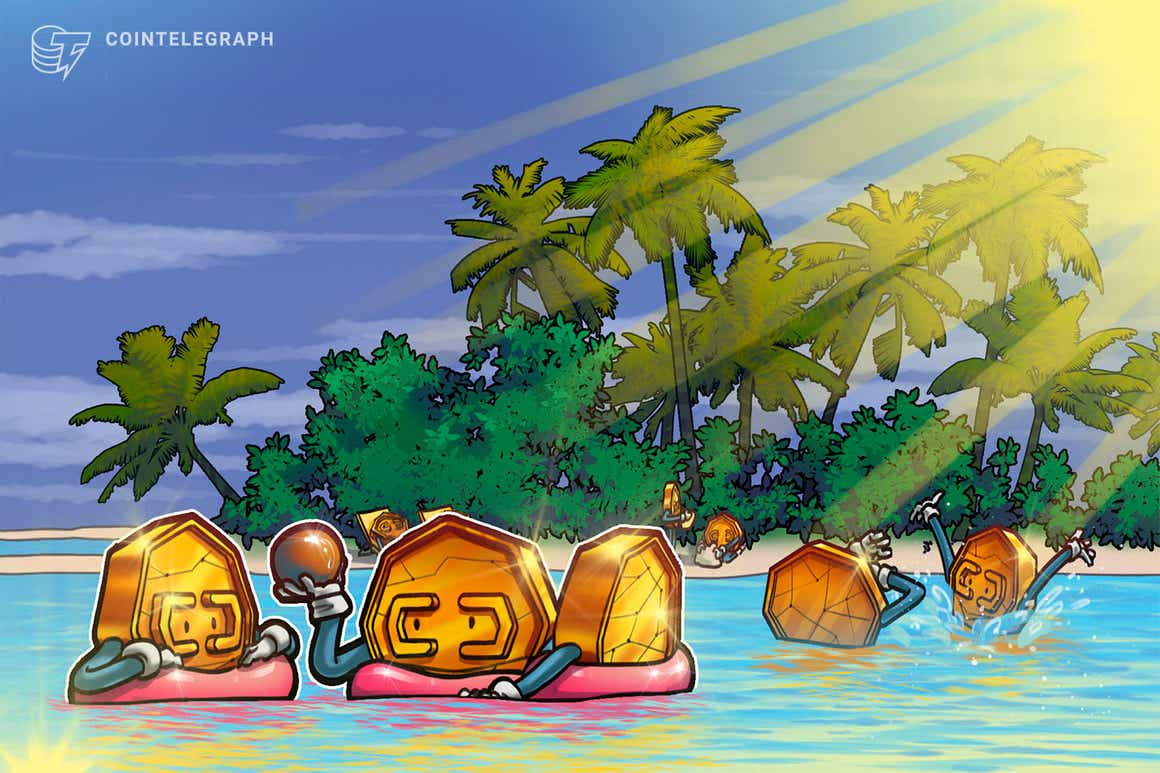The Republic of the Marshall Islands made history in the second week of February after it formally recognized decentralized autonomous organizations (
The Republic of the Marshall Islands made history in the second week of February after it formally recognized decentralized autonomous organizations (DAOs) as legal entities.
The Marshall Islands revised its Non-Profit Entities Act 2021, making it possible for any DAO to register and commence operations in the country. The amendments to the law mean DAOs can now incorporate as nonprofit LLCs with bylaws and membership that can be recorded on the blockchain.
The Pacific state nation on-boarded MIDAO Directory Services Inc., a domestic organization to help other DAOs register in the Republic. This led to the registration of the first legal DAO in the form of Admiralty LLC for Shipyard Software, a decentralized finance- (DeFi-) focused infrastructure developer.
MIDAO co-founder Adam Miller explained the reasons behind their decision to work with the Marshall Islands government and help other entities register their legal DAO in the country:
“I spent months researching what technology could make it easier to launch and operate DAOs. Any solution would cost $10s of millions and over a year to build. Then, the Marshall Islands law emerged, and I realized I could help solve an even bigger problem for DAOs, costing only single-digit ETH and taking days to implement per DAO. That’s when I knew starting MIDAO would be the best way for me to have a positive impact on the DAO community.”
Admiral DAO will be the organizational entity in charge of regulating Clipper — a decentralized exchange (DEX) developed by Shipyard — on behalf of the community and future DEXs built by Shipyard.
What made the Marshall Islands a good destination?
Many existing laws and institutions creating legal entities have not yet taken the unique legal implications of DAOs into account.
As a result, implementing a DAO is not an easy task, even in regions with favorable regulations for nascent technology such as blockchain.
Many jurisdictions require bylaws to be recorded in a specific manner with the government, while blockchain code may be irreversible. In addition, many legal corporations are required to keep track of membership using a ledger of names, whereas DAOs often use tokens. This means that most well-known options only provide partial options for token-holder-based governance.
Take Wyoming in the United States, for example. The U.S. state legally recognized DAOs in July 2021, but this came with caveats. First, the regulations require a minimum of 50% approval in community voting, which some see as an impractical target to achieve. Second, it’s not a sovereign nation thus it must adhere to changes in federal law.

This is what led Shipyard Software to turn to the Marshall Islands, a jurisdiction that enjoys several advantages over others in terms of sovereignty and stability as a Freely Associated State of the United States. The nation boasts the reliability of U.S.-aligned banking and financial systems and a fast-moving adaptable legislative process that can keep up with evolving markets.
David Paul, Minister-in-Assistance to the President and Environment Minister of the Republic of the Marshall Islands, played a key role in formulating and pushing the DAO legislation. Speaking to Cointelegraph, Paul explained why the country has bet its money on becoming a hub for DAOs:
“The Republic of the Marshall Islands sees DAOs as the first major step toward becoming an internationally recognized and premier hub for the blockchain industry. In whatever shape or form, the digital economy is the way of the future and we want to position ourselves as the jurisdiction of choice. We specifically recognize DAOs at this moment as an early-stage innovation in the blockchain sector, and the Marshall Islands wants to be a leader in the DAO sector.”
“Laws and regulations will be created and ratified, based on what the market will require as this space evolves. To remain competitive, Marshall Islands must continue to adapt to changes swiftly and also responsibly at the same time,” he stated.
The sovereign nation has utilized blockchain technology in the past to simplify cross-border payments and has also begun developing a sovereign digital currency. The nation first revealed its plans of launching a sovereign national currency in 2018 and developments began in 2020.
The sovereign currency called the Marshallese Sovereign (SOV) is based on the Algorand blockchain and development works have been ongoing. The sovereign nation received a warning from the International Monetary Fund for its digital currency development program back in June 2021.
Mark Lurie, founder and CEO of Shipyard Software, told Cointelegraph that they have weighed in various factors including regulations, cost, sovereignty and clear DAO treatment before zeroing on the Pacific island state.
Lurie took note of the vulnerabilities involved with DAO networks as well, stating that security and decentralization were…
cointelegraph.com
